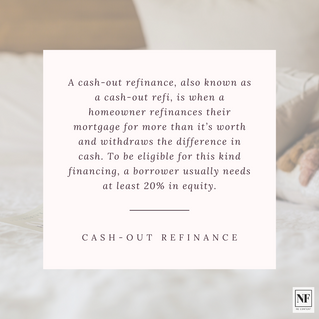
NIKOLE
FERRARI
THE HOMEBUYING PROCESS
opening escrow
When you (the buyer) and the seller have come to an agreement on price and terms and they have formally accepted your offer, you will "open escrow". The escrow time period can be any number of days and usually comes down to what is most desirable to the seller. For example, if the home is vacant and the sellers have already purchased their next home, chances are they will want a quick close (under 30 days). If the seller hasn't found their replacement property or has a specific timeline they need to follow to accommodate their move, they may request a longer escrow period. Escrow, by definition, is the use of a neutral third party, which holds an asset or funds before they are transferred from one party to another. The seller typically chooses the escrow company.
What is the Earnest money deposit?
By day 3 of escrow having started, the buyer must submit to escrow, their earnest money deposit. The earnest money deposit is typically 1-3% of the purchase price and acts as a good faith deposit that, in most cases, goes towards funding your downpayment and closing costs. Sellers rarely accept offers without the buyers putting down earnest money to show that they are serious and are making the offer in good faith. If a buyer decides to cancel escrow prior to removing all contingencies they are (in most cases) entitled to getting the earnest money back in its entirety.
What are contingencies?
A contingency clause defines a condition or action that must be met for a real estate contract to become binding. A contingency becomes part of a binding sales contract when both parties, the buyer and the seller, agree to the terms and sign the contract. The most common contingencies a buyer includes in their purchase contract are title, inspection, disclosures, appraisal, loan, HOA and the sale of another property. When meeting with Nikole you will get an in depth explanation of each contingency including what their purpose is, what due diligence we are responsible for prior to removing the contingency, and more! These contingencies act as a safety net for your earnest money deposit. Should all contingencies be formally removed and you chose to cancel, your earnest money deposit is at risk. This is another reason it is imperative to work with an experienced real estate professional that is communicating with you every step of the way and protecting your investment!
inspections
Arguably the most important part of the due diligence period, inspections are one of the many ways to find out necessary information prior to moving forward on a home. There are a handful of inspections that are available including but not limited to a general home inspection, a foundation inspection, roof inspection, pool inspection and sewer scope. The general home inspection is a MUST and will give a buyer a thorough look at what is going on above and below the surface. The general home inspection will likely prompt further investigating such as mold testing or asbestos testing. During this inspection period it is important to eliminate all questions about the condition of the property. You will also have the opportunity to determine if the home is still worth the value you initially offered after the discoveries.
























